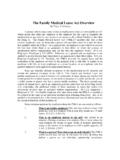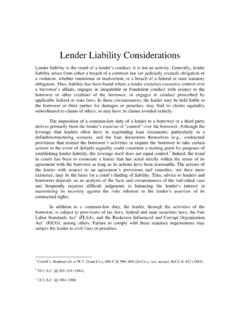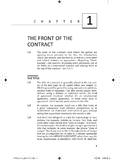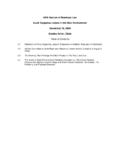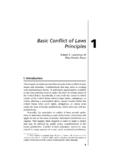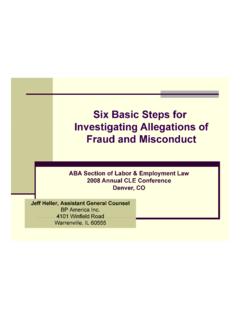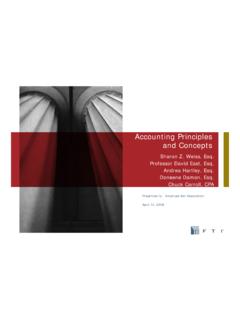Transcription of Disclosure of Suspicious Activity Reports: Who Can ...
1 Disclosure of Suspicious Activity Reports: Who Can Disclose It and Where Can It Go? by Thomas P. Vartanian Chin Pann1 The Bank Secrecy Act of 1970 (the BSA )2 empowers the Secretary of the Treasury (the Secretary ) to require any financial institution, and any director, officer, employee, or agent of any financial institution, to report any Suspicious transaction relevant to a possible violation of law or regulation. 3 Under this authority, the Secretary installed a new reporting system that required financial institutions, and certain individuals related to those institutions (such individuals and financial institutions collectively referred to herein as financial institutions ), to file Suspicious Activity Reports ( SARs ) with the Financial Crimes Enforcement Network ( FinCEN ).
2 4 This SAR reporting system provided the government with a valuable pipeline of information concerning dubious financial Since the inception of the reporting system, these SARs and the wealth of information they represent have been a critical tool in the government s efforts against financial General Prohibition on Disclosure Important to the usefulness of the reporting system is the general prohibition on Disclosure imposed upon financial institutions. These entities are barred from disclosing SARs, or information related to the existence of SARs, to any person involved in the transaction 1 Thomas P.
3 Vartanian is a partner and Chin Pann is an associate in the Washington office of the New York law firm Fried, Frank, Harris, Shriver & Jacobson LLP. Mr. Vartanian is head of its Financial Institutions Transactions Group. 2 31 5311, et seq. (2000). 3 31 5318(g). 4 See FINANCIAL CRIMES ENFORCEMENT NETWORK, 1ST REVIEW OF THE Suspicious Activity REPORTING SYSTEM (SARS) (1998) (stating that the requirement to file SARs is by the Secretary s authority under the BSA), available at ; see generally, 31 103 (containing various regulations enacted by the Department of the Treasury (the Treasury Department ) requiring the filing of SARs with FinCEN).
4 FinCEN is a bureau of the Treasury Department. There are different implementing regulations for different types of financial institutions. For example, 31 concerns banks while 31 concerns insurance companies. While there are differences between these implementing regulations, these regulations are substantively the same for the purposes discussed in this article. 5 See, , FINANCIAL CRIMES ENFORCEMENT NETWORK, ISSUE 3, THE SAR Activity REVIEW: TRENDS, TIPS & ISSUES 37 (2001) (discussing the value of SARs to law enforcement), available at 6 Id. reported upon in the FinCEN guidance explains that [t]
5 His prohibition effectively precludes the Disclosure of a SAR or the fact that a SAR has been filed to anyone, but the prohibition does not prevent the Disclosure of the information underlying the SAR so long as the secrecy of the SAR s existence is in no way The law makes an unauthorized Disclosure of SARs or certain related information a criminal In the context of litigation, the federal banking agencies and FinCEN advise financial institutions not to admit or deny the existence of a SAR and not to disclose a SAR in response to any discovery request or In cases where a third party is persistent, the banking agencies or the Attorney may intervene to protect the interests of the United States and urge the court to deny all discovery requests for Interesting issues arise when the Disclosure of a SAR is a fundamental aspect of the case.
6 For example, may a party in a lawsuit state that an institution has filed a SAR, if that is relevant to its case, without violating the non- Disclosure provisions of the law? There are, however, limited circumstances when financial institutions are required or permitted to disclose such information. One such exception, among others, to this general prohibition is Disclosure to an appropriate law enforcement agency or an appropriate supervisory These government agencies may request SARs directly or in the form of certain 7 31 5318(g)(2)(A).
7 8 FINANCIAL CRIMES ENFORCEMENT NETWORK, THE SAR Activity REVIEW: TRENDS, TIPS & ISSUES 28 (2000), available at 9 See 31 5322. 10 See 31 5318(g); FINANCIAL CRIMES ENFORCEMENT NETWORK, ISSUE 9, THE SAR Activity REVIEW: TRENDS, TIPS & ISSUES 45 (2005), available at ; FINANCIAL CRIMES ENFORCEMENT NETWORK, ISSUE 7, THE SAR Activity REVIEW: TRENDS, TIPS & ISSUES 51-52 (2004), available at ; (national banks); 12 (state chartered banks belonging to the Federal Reserve System); 12 353 (other state chartered banks); 12 (d) (federal thrifts and savings associations). However, institutions should never disobey the order of a court to make Disclosure , although they should appeal an adverse order and seek a stay when possible.
8 FINANCIAL CRIMES ENFORCEMENT NETWORK, ISSUE 4, THE SAR Activity REVIEW: TRENDS, TIPS & ISSUES 50 (2002), available at 11 See FINANCIAL CRIMES ENFORCEMENT NETWORK, THE SAR Activity REVIEW: TRENDS, TIPS & ISSUES 28 (2000) (discussing the potential for government intervention), available at 12 See, , 31 (e). The implementing regulations in 31 103 for the various types of financial institutions are split between their use of supervisory or regulatory in reference to appropriate agencies for Disclosure . Some regulations except only law enforcement and supervisory agencies while other regulations except only law enforcement and regulatory agencies.
9 For purposes of this article, references to supervisory agencies include both supervisory and regulatory agencies. instruments of law enforcement like grand jury subpoenas or National Security Additionally, financial institutions may provide SARs or related information to appropriate law enforcement and supervisory agencies on their own initiative, even when no agency has requested such Requirement to Determine Appropriate Agencies Upon receiving a request for information related to SARs from government agencies, financial institutions are posed with the task of determining whether the particular requestor is an appropriate law enforcement or supervisory agency.
10 A question that can be a bit difficult at times. FinCEN guidance indicates that financial institutions that have received a request are required to disclose to appropriate law enforcement and supervisory agencies the backup that supports the Even in the absence of any requests for information, financial institutions are allowed and encouraged to share a Suspicious Activity report , or the information contained therein, with these appropriate FinCEN warns financial institutions to be cautious in determining whether a request is coming from an appropriate Hence, this interplay between the general rule of non- Disclosure and the requirement for and allowance of Disclosure in the case of appropriate law enforcement or supervisory agencies results in financial institutions having to make determinations of whether particular government agencies are appropriate recipients of SAR information.
